Online platform to embrace wide community of people affected by genetic diseases by Deborah Levenson
Connect. Ask. Answer. Discover. RUNmyDNA.com is going to launch soon! Great article on our new platform! We will be having a webinar soon for our early registered users! Go to https://runmydna.com/early-registration/ for early registration now! #RareUndiagnosed #Undiagnosed #RareDisease#RUNmyDNA
http://onlinelibrary.wiley.com/enha…/…/10.1002/ajmg.a.37751/
Thank you American Journal of Medical Genetics Part A, Deborah Levenson and Dr. John Carey for your support of RUNmyDNA.com.National Organization for Rare Disorders, Inc. (NORD)
American Journal of Medical Genetics Part A
Volume 170, Issue 7
July 2016
Pages 1661–1662
AJMG SEQUENCE: Decoding News and Trends for the Medical Genetics Community by Deborah Levenson
Online platform to embrace wide community of people affected by genetic diseases
RUNmyDNA.com designed to break down communication silos among parents, advocacy groups, geneticists, and insurers
First published: 17 June 2016Full publication history
DOI: 10.1002/ajmg.a.37751View/save citation
Cited by: 0 articlesCitation tools
Parents of children with rare genetic diseases typically navigate diagnostic odysseys involving geneticists, researchers, patient advocacy groups, other health professionals, and insurance companies who often don’t talk with one another.
A new online platform, RUNmyDNA.com, aims to break down communication silos among these groups and streamline the transfer of information beneficial to all of them, says Gina Szajnuk, one of the site’s co-founders. Ms. Szajnuk is also Co-Founder and Executive Director of the Rare & Undiagnosed Network (RUN) and Utah Rare 2016 Committee Chair, both based in Park City, Utah, and is Utah State Ambassador to the Danbury, Connecticut– based National Organization for Rare Disorders.
RUNmyDNA—an entity entirely separate from those organizations—is designed to complement other existing platforms that promote communication among families, geneticists, physicians, and researchers interested in single-gene disorders. RUNmyDNA is distinct because of its focus on a wider array of diseases, including those involving multiple genes, such as cancer.
The platform also involves advocates, insurers, and healthcare providers who practice in alternative medicine and nongenetics Western medicine specialties.
RUNmyDNA.com is designed to serve as an online community of people from these groups that enables them to “talk to each other and learn about research, care, and how to pay for it,” explains Ms. Szajnuk.
How It Works
Registered users who set up online profiles can use the site for free and control the amount and type of information that is available about them to other registered users and the public.
Families who create profiles can post stories about their diagnostic odysseys. For affected family members, users can indicate whether they are research participants, how often they have seen doctors, what types of genetic testing they have had, and genes of interest identified by those tests. Profiles can also show affected family members’ blood types, symptoms, wellness routines, and treatments that have helped.
Families can use the site as a repository for their health information, including medical histories, photos, and videos of members affected by genetic disease. Ms. Szajnuk and other co-founders hope to also allow uploads of sequencing data to the platform.
Patients, especially those with undiagnosed diseases, have longed for a central medical information repository so that they need not repeat their medical histories and send images to multiple healthcare providers, says Ms. Szajnuk, who has experienced such difficulties with her children’s healthcare providers.
“I’m tired of traveling with my suitcase full of medical records because there isn’t one network bridging the medical community across the globe,” she writes in her blog on the RUN website. “I’m tired of tracking down all of the thousands of pieces of paper across the country so that I can have their [the children’s] complete medical record. I’m tired of one doctor telling me to give the children a drug and another doctor telling me not to give the drug.”
“It’s ridiculous that I haven’t been able to have a group conversation with all my providers regarding my healthcare,” she adds.
“I’m tired of tracking down all of the thousands of pieces of paper across the country so that I can have their [the children’s] complete medical record” —Gina Szajnuk
Another RUNmyDNA co-founder, Peter Busch, says physicians’ concerns about patient privacy and legal liability may play a role in preventing a more efficient transfer of medical information among providers. Because families put their own medical information on RUNmyDNA, their various providers are spared legal liability for breaching medical privacy regulations, Mr. Busch explains.
Geneticists and other physicians can use RUNmyDNA to get information about families who may share their own patients’ symptoms and connect with similarly interested researchers and advocates, Ms. Szajnuk adds.
The website, RUNmyDNA.com, serves as a central hub for families, scientists, and health professionals to share information about genetic diseases.
For Insurers
Because RUNmyDNA is relatively new (its expected launch date was June 2016), Mr. Busch and Ms. Szajnuk are still working out how exactly insurers will be involved in the online community.
Optimally, “RUNmyDNA will provide education for both sides. We hope to make insurers understand why sequencing is essential and hope to learn what they need from doctors to get coverage approved faster,” says Ms. Szajnuk. “The platform is a place to start the dialogue.”
The platform also includes alternative medicine providers because many people with rare diseases, especially undiagnosed ones, depend on them. “Because I’m undiagnosed, there isn’t a drug that fixes me. I’m into acupuncture, natural remedies, massage, and meditation. This stuff isn’t covered by insurance,” Ms. Szajnuk explains.
RUNmyDNA users can also post articles and other sources of information to the online community, notes Mr. Busch. Information searches on RUNmyDNA are preferable to using Google, he adds, because Google and other search engines require users to “sift through clutter and misinformation while our search engine filters information and allows users to qualify content.” RUNmyDNA users will “save time on searches and find exactly what or whom you need in the most efficient way possible,” he adds.
The co-founders say the site will be a boon to geneticists. “We are trying to add to their tool set in way that’s not [been] done before,” says Mr. Busch. Ms. Szajnuk says she hopes “this site makes geneticists’ jobs easier and more rewarding.”
Ultimately, families affected by genetic diseases will benefit from help the platform can give geneticists and the other healthcare provider groups. “Our mission,” Ms. Szajnuk says, “is to improve quality of life for families through engaging all of them.”

